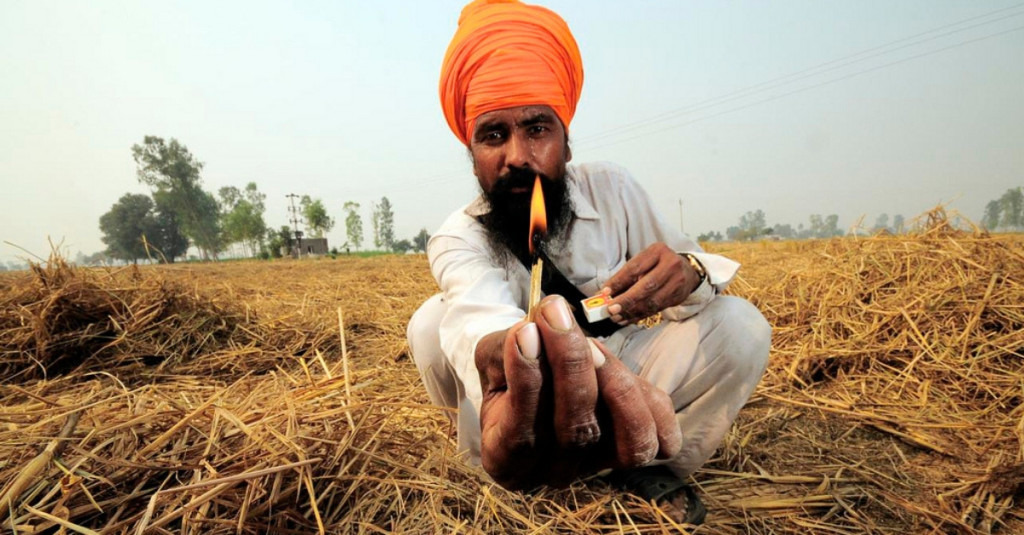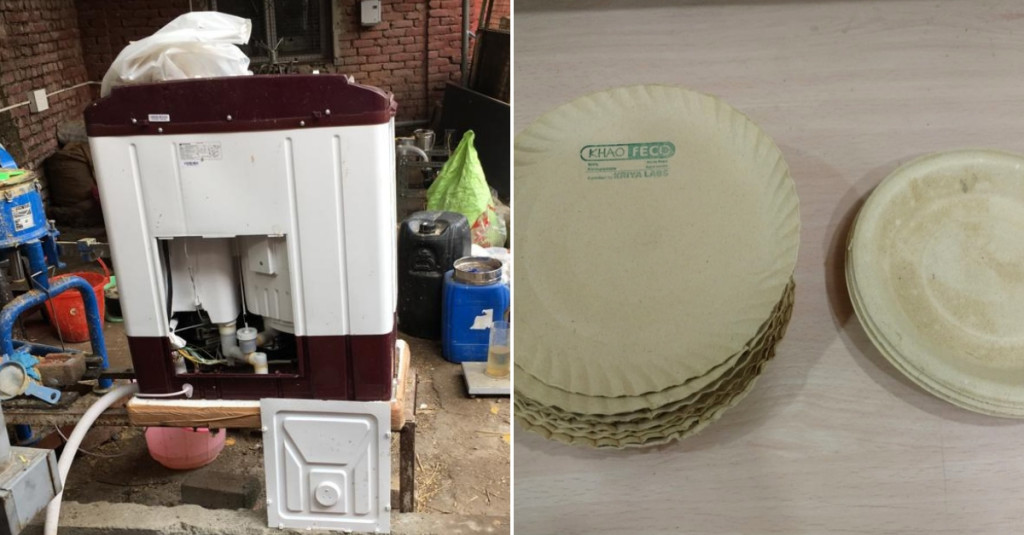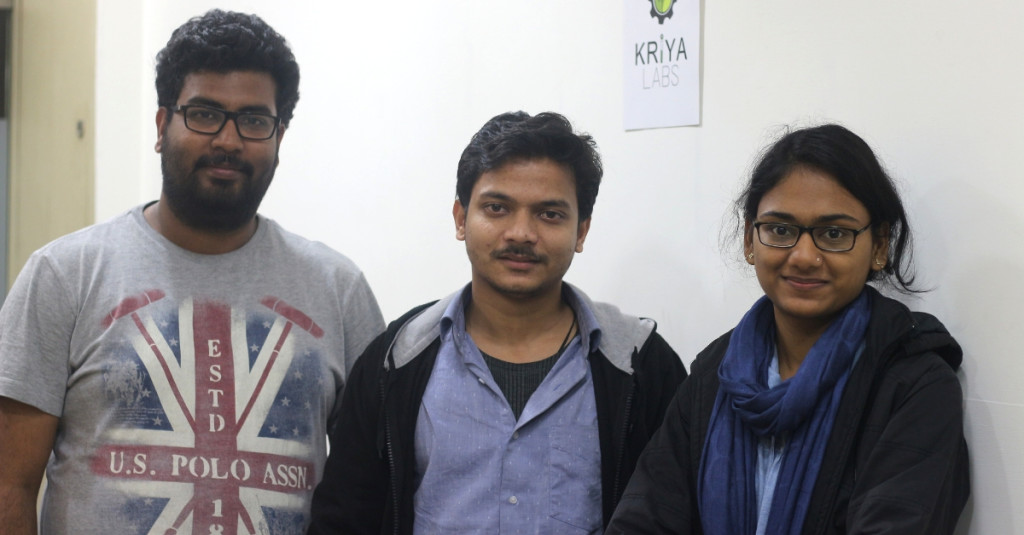“The most basic fact which causes crop stubble burning, especially paddy straw, is the unavailability of its market. Unlike other agro-residues like wheat straw and bagasse, paddy straw is not used as an industrial raw material or even cattle feed.”
Winter is coming, and Delhi is already getting enveloped in the smog that smothers it every year. Firecrackers burst during the Diwali week, and stubble burning in villages in Punjab and Haryana are the major contributors.
According to a report in the Business Standard, this post-harvest custom is contributing to 20-30% of Delhi’s air pollution!
It’s a common understanding that this harmful method to dispose of paddy straw needs to be done away with. But from a farmer’s point of view, there really aren’t many options.
The Better India spoke to IIT-Delhi alumnus Ankur Kumar about a pilot unit they have developed that could potentially end this polluting custom.
“The most basic fact which causes crop stubble burning, especially paddy straw, is the unavailability of its market. Unlike other agro-residues like wheat straw and bagasse, paddy straw is not used as an industrial raw material or even cattle feed.
Therefore, any cost in collection, transportation and storage always exceeds the market compensation, so farmers choose to burn it,” Kumar said.
The farmers needed a sustainable solution to replace their stubble-burning methods which could also be profitable for them. For a common farmer who depends on the seasons and the markets to give him an income to last an entire year, spending a few thousand rupees every winter to collect and transport his “waste” residue isn’t affordable.
And so, a team in IIT-Delhi developed a unit that could take this residue and convert it into raw material for urban industries that make eco-friendly products such as pulp-paper and biodegradable tableware.
In this regard, they have developed a process of converting paddy straw (agro-residue in general) into different grades of pulp, which can be used as raw material for various end applications like making paper, biodegradable tableware, fabric, bioethanol etc.
“At present, our focus is on making pulp which is good enough to make biodegradable tableware. Because of the plastic ban in several cities, the demand of compostable tableware has increased exponentially, therefore fetching a premium price which is good enough to compensate at least Rs 5,000/acre to farmers, in return for their straw.
This is equivalent to 100% profit to the farmers as the cost of collection, transportation etc. is around Rs 2,500/acre,” elaborates 22-year-old Kumar.
The team has named the disposable tableware made from this pulp, KhaofECO. Made from agro-waste, they decompose easily, leaving no threat to the environment.
Adding to that, Pracheer Dutta who studied textile engineering from the premier institute, said, “I think we are the missing piece of the puzzle of solving the agro waste burning problem. We make tech to enable the uptake of agro waste, and also fill the voids in the market chain one by one. We are in the business of saving the environment.”
The team aims at empowering farmers to collect and transport their agro-residue to local entrepreneurs for a profit. These entrepreneurs will then turn the straw into pulp and sell it off to businesses that make biodegradable products from them.
Kanika Prajapat, the third team member from IIT-Delhi, told The Better India that the technology they developed adds value in rice straw to be potential stock material.
She says, “I believe the innovation lies in the overall concept of using agro residue to make different products. The business model is designed in such a way that the environment is kept at the highest priority, whether it’s reducing straw burning, utilising agro residue, making pulp technology green or reducing non-biodegradable plastic tableware.”
What started as a summer project back in 2014, has now turned into a full-fledged business idea. The team, headed by Dr Neetu Singh and PVM Rao, both professors at the institute, are looking forward to extending this pilot machinery into a commercial unit.
For this, they are proactively looking for private or government funding. You too can help them reduce one of the biggest contributors to Delhi’s winter air pollution. Send an email to Ankur at ankur@kriyalabs.co.in for the same.
With Diwali around the corner as well as the season of harvest, two major polluters will be in full force. If farmers start adopting this method of using their agro-waste to make biodegradable products, not only will they reduce their contribution to the capital’s smog, but will also earn a profitable income while doing so. Great news for farmers, locals and entrepreneurs, IIT-Delhi’s innovation certainly is promising!
As Prajapat concludes, “At each step, our primary focus is always on reducing harmful impact on the environment.”
(Edited by Shruti Singhal)
Article Source: The Better India




I want to start a business of using wheat straw in making plates and other things but I don’t have any knowledge of it please help me I am a business woman and want to give chance of women of my area to earn somthing and I also want to do something to prevent pollution from the burning of these straw please help me
I wood like to make greenplates in kerala using available paddy srraw. Please help me giving a project report for a micro project. Thank you.
How can I provide you the raw material